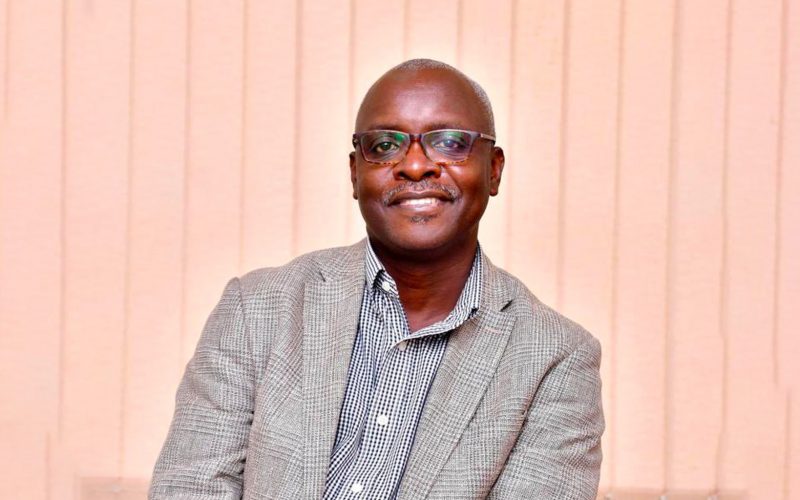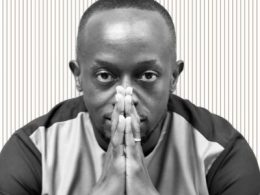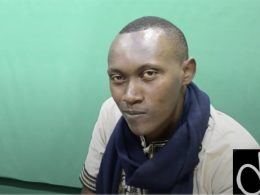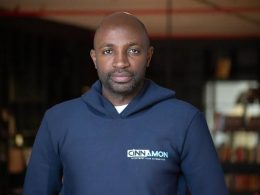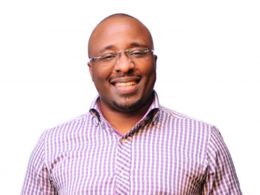By Mark Kawalya
From a high-flying corporate career as the CEO of Vision Group to tilling the land to make ends meet, the ever-versatile Robert Kabushenga can be described as a man who has an uncanny ability to handle whatever volleys life throws at him. He is a man who tasted the high life that comes with being at the apex of a large firm, yet also had the wisdom to understand that titles are temporal and should be separated from one’s true organic self.
Robert trained as a lawyer and holds a law degree from Makerere University and a postgraduate diploma in legal practice from the Law Development Center. However, as the fortunes and winds of life blew, he found himself engaging more in media related work for the duration of his career than tussling it out in courtrooms.
A Glimpse into his Childhood
Kabushenga’s business journey started in 1976, when he was about 8 years old.”I was living with my mother in Naguru flats, and to make some money, she started baking buns, which I helped her sell door-to-door around the neighborhood. I learned some valuable lessons, like having the confidence to approach people, and dealing with things like rejection because not everyone will buy from you. The payment I got was that at tea time, my mother gave me two buns while everyone else had to make do with one bun.” He says he’s grinning.
He remembers growing up in an era where there were no walls and fences surrounding people’s homes. “We played really hard and would climb fruit trees to get something to snack on during our games. It was an exhilarating experience. We walked to school like everybody else, which too was an adventure in itself.”
However, the times were quite perilous due to the political situation, as Idi Amin was the president at the time. Robert lived through two wars, and during this period, things like food were rationed while sugar and toothpaste became overnight luxuries. “We survived on what was available and would brush our teeth with soap as an alternative means to maintain dental hygiene. We were so ruled by the experience of shortage and uncertainty, and in a way, this has manifested in how we have raised our children by trying to compensate.
Like many children who grew up in the city, Robert’s life had two seasons. He lived in the city during the school term and traveled to the village during the holidays. In the village, his life can be described as absolute freedom, a taste of the true African way of life in in the 70s and 80s.
“We used to bathe in the river and in the rain whenever the heavens opened. Life was simple and had a very well-planned schedule.” Robert and his cousins used to go to the garden to dig in the morning and would later fetch water from the well in the afternoon. They would then, take the cows for grazing and take a dip in the river. His early trips to the village would play a key role in enabling him to make his future transition from the exciting city life to the simple, quiet existence on Rugyeyo Farm as its proprietor and overseer.
His Work at Vision Group.
Robert started his journey at Vision Group as part of the team that carried out the lowly work of counting newspapers. He was a student at the time and would later return to the company as a legal officer. He steadily rose through the ranks, becoming a company secretary before moving to work in the office of the president before returning to a higher management position. From January 2007 to January 2021, Kabushenga served in the positions of Managing Director and Chief Executive Officer of the Vision Group, a remarkable rise from his humble start keeping a tally of newspapers.
When asked about his key achievements while at the media firm, he says, “I had always wanted the Vision Group to have a broadcast outlet. I implemented those decisions, which ended up working very well for the company.”
One of the key takeaways from his time at Vision Group is that Kabushenga tried his best not to get attached to the office that he held. “I did not have any personal memorabilia like family photographs and such in my office. I knew I was merely serving in that position and that the office was not mine to covet. I was always prepared to vacate the office as quickly as was humanly possible. Keeping this at the back of my mind helped me maintain a clear perspective. I kept a separate entity from the office that I held. I was simply Kabushenga.” Similarly, he refused offers to have a driver chauffer him wherever he went and declined the appointment of bodyguards to keep watch over him.
The other principle the former CEO kept close to his chest was that he had decided earlier on that he would keep the job for as long as he enjoyed the confidence of his employer. In the event that his employer started to doubt if he was still the right person for the job, he would make the hard decision to relinquish this position and move on to other things.
My Decision to Retire
During the last years of his tenure, his deliverables as the CEO of Vision Group grew, and the demands on his position became more difficult for him to fulfill. “I realized that at that point, the most appropriate decision I could take was to give room for fresh talent to come and possibly executive where I had been unable to. There was a feeling that I was not applying myself sufficiently to my job and that I was more interested in my farming project. I was farming publicly, so there was sufficient evidence of my farming activities, although I don’t agree with that.” He weighed all these things and decided to leave in January 2021.
“Over the years, I enjoyed a very good relationship with my employer, and leaving the company was not something that made me feel shortchanged in any way. The Vision Group did a lot for me, and even setting up this farm I own today is a result of the office I held. It doesn’t make any tangible sense to harbor any ill feelings about my leaving my former job.”
Life on Rugyeyo Farm
Robert wakes up at about 5.30 in the morning and does some reading. After a quick run around the track on the farm, he has a quick breakfast. From around 9:00 a.m. to 12:00 a.m., he does farm work that involves things like responding to emails and inquiries. He later goes out to inspect the farm and see how everything is progressing before having lunch at 12.30 p.m., which primarily consists of posho and beans. “There is no time for luxuries here, so I eat what the workers on the farm eat.” After a nap in the afternoon, he goes for another round of farm inspection to see if the day’s work has been done.
Rugyeyo Farm is a mixed farm on which a combination of coffee and banana agriculture is carried out. Additionally, apiary and dairy farming are also carried out on the farm. Kabushenga set up the farm while still working as the CEO of Vision Group. He knew that he would not be a company executive for all his life, so he decided to start developing mechanisms that would sustain himself and his family after he left his corporate job.
Since 2016, when his farming journey kicked off, he had never spent a night on the farm. He came in the mornings and always drove to Kampala in the evening. In March 2021, he decided to work the farm full time and experiment with sleeping at the farm.
“Sleeping at the farm was radically different from what I was used to. It was deathly quiet and dark in the night. There were no people around, and I had to contend with rats running around in the dark and noises in the ceiling that he could not recognize. It was very unusual.”
The people that work at Rugyeyo Farm are simple, hardworking people who are looking for an honest day’s work. The security of the farm is ingrained in the fact that the local people have a stake in it. They are paid, which enables them to take care of their families. Robert has also managed to source clean water, which the village did not have before. With the community around him benefiting from clean water, which they did not have before, more and more people are invested in the success of the farm.
Like with any project, the management of the workers can have its challenges. “I have learned that farming is not my area of expertise, and some of these people that I employ know more about farming than I do. So, when they demonstrate this, I listen to them. The guy who minds my coffee plantain was trained in coffee husbandry. I trained as a lawyer, so I listen to his advice. So, while my workers cannot argue with me on matters of the law, I too cannot argue with them on matters to do with farming.”
In the future, Kabushenga hopes to produce the highest grade of coffee from this farm and is happy with the simple, more fulfilled life he lives now.




